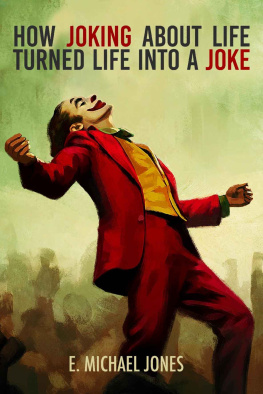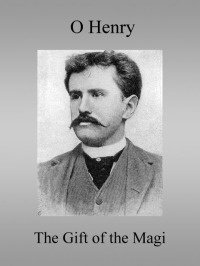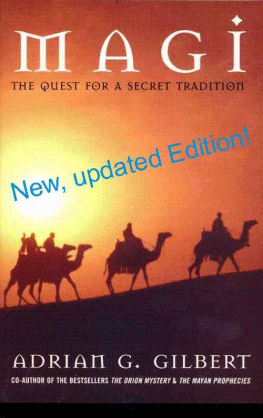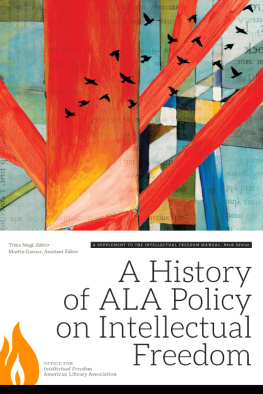E. Michael Jones - The Magi and the Apartheid Wall
Here you can read online E. Michael Jones - The Magi and the Apartheid Wall full text of the book (entire story) in english for free. Download pdf and epub, get meaning, cover and reviews about this ebook. year: 0, publisher: Fidelity Press, genre: Religion. Description of the work, (preface) as well as reviews are available. Best literature library LitArk.com created for fans of good reading and offers a wide selection of genres:
Romance novel
Science fiction
Adventure
Detective
Science
History
Home and family
Prose
Art
Politics
Computer
Non-fiction
Religion
Business
Children
Humor
Choose a favorite category and find really read worthwhile books. Enjoy immersion in the world of imagination, feel the emotions of the characters or learn something new for yourself, make an fascinating discovery.
- Book:The Magi and the Apartheid Wall
- Author:
- Publisher:Fidelity Press
- Genre:
- Year:0
- Rating:5 / 5
- Favourites:Add to favourites
- Your mark:
- 100
- 1
- 2
- 3
- 4
- 5
The Magi and the Apartheid Wall: summary, description and annotation
We offer to read an annotation, description, summary or preface (depends on what the author of the book "The Magi and the Apartheid Wall" wrote himself). If you haven't found the necessary information about the book — write in the comments, we will try to find it.
The Magi and the Apartheid Wall — read online for free the complete book (whole text) full work
Below is the text of the book, divided by pages. System saving the place of the last page read, allows you to conveniently read the book "The Magi and the Apartheid Wall" online for free, without having to search again every time where you left off. Put a bookmark, and you can go to the page where you finished reading at any time.
Font size:
Interval:
Bookmark:
FidelityPress
206Marquette Avenue
South Bend, Indiana 46617
Copyright, Fidelity Press

Why did you Americans do that terrible thing? she criedout. We always loved America. To us, America was the great country, theperfect country, the country that helped us while other countries wereexploiting us. But after that moment, no one in Iran ever trusted the UnitedStates again. I can tell you for sure that I you had not done that thing, youwould never have had that problem of hostages being taken in your embassy inTehran. All your trouble started in 1953. Why did you do it?
Shiraz is roughly 200 miles west of the hottest place onearth, the Lut desert, where the temperature has been measured at 159 degreesF. Having me speak in Shiraz was Hameds idea. Hamed Ghashghavi is theflamboyant, 25-year-old son of an Iranian diplomat who grew up in Tunisia and isas a result fluent in French and Arabic. His language ability allows him tonetwork, and his network now spreads throughout Iran and large parts of theWest.
We arrived in Shiraz shortly after 8:00 in the morning. I amscheduled to speak at 11:00 AM in spite of the fact that I went to bed aftermidnight and had to get up at 3:00 AM to make the flight to Shiraz. Standing inthe already blazing heat, I decide that I wont make it through my talk unlessI get a decent breakfast.
I need to eat an omelet, I say to Hamed.
Sure, Mike, Hamed says and relays the message to Shaheenand Mohammed, who picked us up at the airport.
Both are students at the Technological University of Shiraz.Both are even younger than Hamed. When Shaheen approached us in the heat of theairport parking lot, he looked a lot like Ben Afflecks idea of a hostage-takingIranian terrorist, complete with Republican Guard uniform tunic. Mohammad takesthe wheel and we begin driving down the alleys of Shiraz, which are not muchwider than our compact Fars car, a Peugeot knock-off produced in Iranianfactories. We end up at what looks like a caf next to an auto body shop, bothof which share the same hole in the ground as their rest room. The walls aredecorated with Iranian body builders, who got that way by practicing thetraditional Iranian bodybuilding known as House of Strength or Zurkhanehby tossing larger and larger clubs into the air.
I look like an American businessman in my dark suit andyellow tie. Hamed, Mohammed, and Shaheen have all disappeared and the rest ofthe cafs occupants view me with mild disinterest as they puff away on theirhookahs. It is the first time that I have ever seen an Iranian smoke.
When my breakfast arrives, I try to discern which dish isthe omelet by process of elimination. It isnt the flat bread, and it isnt theplate full of alfalfa-like salad on the next plate, so it must be the pile ofreddish substance in the middle. I begin to eat. The reddish substance is warm,so I conclude that I will not contract dysentery from it. For the same reason,I refrain from eating the pile of greens, remembering what happened to theWesterners who ate salad in Cairo in 1994.
Hamed wonders why I am not eating the salad.
A chacun sa gout, I say.
What? he asks.
I repeat the phrase about five times and then finallytranslate it into English.
Oh, he says when the light bulb finally goes on, A chacunsa gout.
Thats what I said.
Your French is terrible.
He is, of course, right. My French is terrible, but even ifit werent I have no desire to argue with him. The red omelet has formed aknot in my stomach, and as we drive to the university I say a prayer that itdoesnt get worse.
The political situation has changed dramatically since myfirst trip to Iran. President Ahmadinejad was voted out of office and replacedby Rouhani, who is determined to come to an agreement with the Americans whichwill end the economic sanctions which have been imposed on Iran. The Obamaadministration seems determined to reciprocate, even if its program seems to betwo steps forward and one step back. The Obama administration did not take thebait that the false flag gas attack in Syria offered in August of 2013. InsteadObama agreed to work with Vladimir Putin. The Israel Lobby was furious, butAIPACs attempt to impose new sanctions failed in January 2014 largely becausea new pro-Obama Jewish lobby, J Street, opposed them and gave wary congressmana way out. It was AIPACs first major defeat and signaled a decline in itspower.
Not to be deterred, the Jews countered with Victoria Nulandscoup dtat in the Ukraine, which made it impossible for Obama to workwith Putin and blocked what was promising to be a convergence on gender issuesbetween Poles and Russians. Nuland, wife of Neoconservative luminary RobertKagan, failed in the act of succeeding, giving us a stunning recent example ofwhat Hegel called the cunning of reason. The democratically electedYanukovich government was overthrown by a coalition of American supportedNeo-Nazi thugs, but the Neocon holdovers from the Bush Administration overreached,causing a reaction, and the Crimea returned to Russia, putting an end to NATOsexpansion eastward and signaling the beginning of the end of the AmericanEmpire and its century-long efforts to control the Eurasian landmass. In spiteof everything, the Obama administration continued its overtures to Iran,lifting the sanctions prohibiting sale of oil for six months around the time Iwas traveling through Iran with Hamed.
Over the course of our travels, Hamed told me he was willingto die for the Supreme Leader. The real issue now, however, is whether he andhis generation are willing to live for the Supreme Leader. The situation haschanged since the 1981 war with Iraq. The revolutionary fervor of 1979,followed closely by the war which took 300,000 lives, pictures of whom adornvirtually every building in Iran, has been replaced by a period of uncertainty.We know the Iranians know how to die; the current question is whether they knowhow to live, and what principles will guide their lives through this currentperiod of uncertainty. Hamed is a supporter of former President Ahmadinejad andis worried about whether the new Rouhani government is going to bargain awayall of the gains of the revolution in order to broker a sanction-ending deal onthe nuclear issue. He also talked about finding a wife. Willingness to die inbattle and a desire to get married are two of the deepest aspirations a humanbeing can have, but they require different intellectual infrastructure to findcompletion, and now the conditions necessary to marry, have children and becomeone of the indispensable social cells which will carry Iran into the future havebecome opaque to large numbers of Iranians. The main issue is birth control.
Shortly after I returned from Iran, Thomas Erdbrinksarticle on Irans troubled attitude toward children appeared in the New YorkTimes. In a form that we have come to expect on issues and populationswhich the global elites have targeted for social engineering, Erdbrink tellsthe story of Bita and Shirag, a young couple who are really serious aboutnot having kids.So serious, in fact, that Bita has procured two abortions, even though abortionis illegal in Iran. Erdbrink does his best to portray Ayatollah Ali Khamenei asa religious fanatic intent on imposing his views on Irans helpless women via:
a 14-point program, announced late last month, thathealth officials hope will lead to a doubling of Irans population, to 150million, by 2050. Hospital delivery stays are now free, and women are allowedlonger maternity leave. Reversing past policies to control population growth,the government has canceled subsidies for condoms and birth control pills andeliminated free vasectomies.... Billboards in the capital show a laughingfather with five children riding a single tandem bicycle up a hill, leaving farbehind an unhappy looking father with only one child. Those parents whoactually produce five children are now eligible for a $1,500 bonus, not thatmany here are likely to be tempted.
Font size:
Interval:
Bookmark:
Similar books «The Magi and the Apartheid Wall»
Look at similar books to The Magi and the Apartheid Wall. We have selected literature similar in name and meaning in the hope of providing readers with more options to find new, interesting, not yet read works.
Discussion, reviews of the book The Magi and the Apartheid Wall and just readers' own opinions. Leave your comments, write what you think about the work, its meaning or the main characters. Specify what exactly you liked and what you didn't like, and why you think so.













